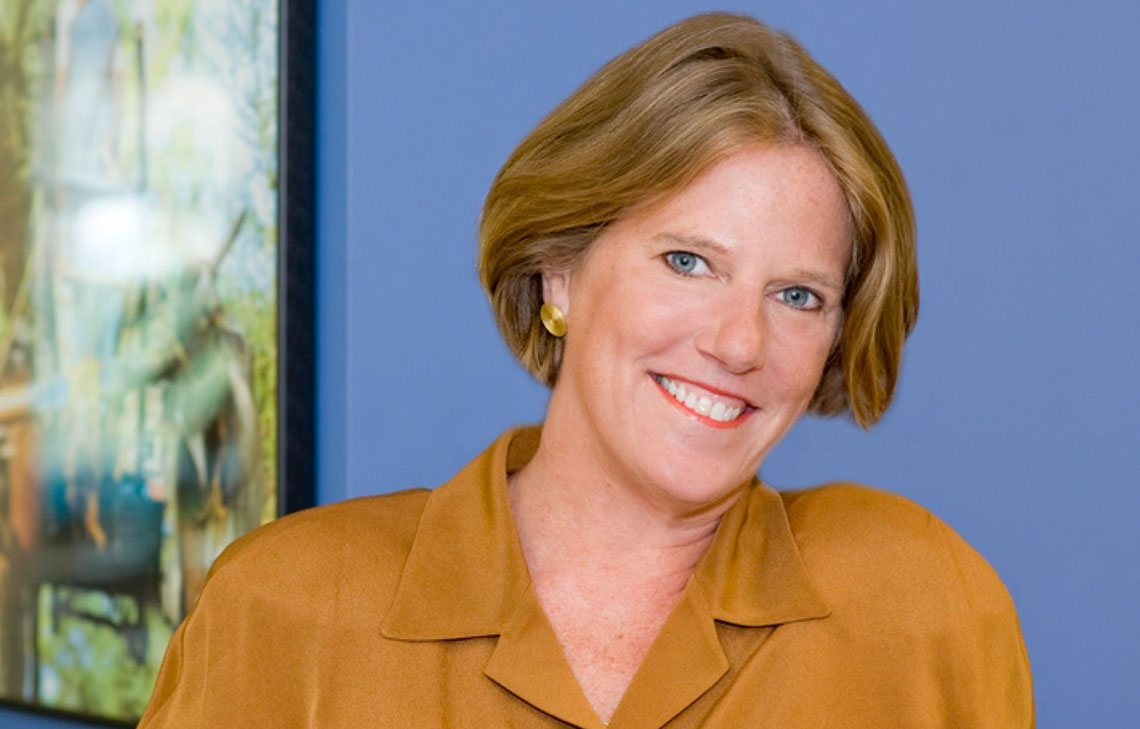There is a tendency to assume that long-term thinking and a focus on sustainability will become luxuries in the aftermath of the pandemic. I believe there are clear and hopeful signs to the contrary.
Just in the past two years, corporate sustainability and the recognition of businesses’ broader role in society have become central priorities for corporate leaders. This has built on the groundwork over the last decade on environment, social, and governance, or ESG, frameworks and even earlier corporate social responsibility, or CSR, programs.
Momentum has been fueled by growing evidence that companies with strong sustainability programs and ESG policies outperform those without. In the financial market turmoil of the past two months, the outperformance of ESG-themed indices even accelerated.
This outperformance stems from better governance, better risk and cost management, increased employee productivity and cooperation, reduced regulatory and legal interventions, improved access to markets, greater consumer loyalty, and, ultimately, resilience in the face of volatility.
That resilience has never been more important.
Sustainable investments are growing, and outperforming, in a volatile market
The global pandemic has exposed fundamental weaknesses in our system that societal commitments to sustainability are meant to address. Health infrastructure. Social safety nets. Inequality and labor and human rights policies. Water and sanitation. Agricultural supply chains. The crisis has revealed the tremendous cost of waiting too long to address looming systemic problems such as these.
Imagine if the world had adequate supplies of PPE and ventilators before the pandemic? Or if the illegal wildlife markets had been closed off? Playing catch-up is extremely expensive and costs lives.
There is hope these costly lessons will give a much-needed boost for collective action on the slower-moving but existential global crises of inequality, climate change, biodiversity loss, water scarcity, and mass labor force disruption. The solution to these impending crises must be systemic, and must engage government, business, civil society, and the scientific community across national borders.
As someone recently told me, there will be a vaccine for COVID-19, but there is no vaccine for climate change.
Signs of hope
The first months of this crisis have demonstrated the possibility of unprecedented cooperation and the central role business can play in the recovery. Crises are often powerful catalysts for change and there are signs that this global pandemic just may pave the way for the positive changes the world urgently needs.
The ‘Just Do It’ mindset
The world has shown that we can rally if we really need to. We have moved incredibly quickly in recent weeks, making sacrifices we could not have imagined. Many businesses have led the way, acting quickly to protect frontline workers, ensure continuation of essential services, pivot manufacturing to support relief efforts, and drive the innovation necessary to solve this crisis.
Doing what needs to be done on sustainability, social infrastructure, and the environment is, in many ways, far less difficult if we take bold action now. And these actions have many immediate and tangible benefits too, from job creation to health gains to lower energy costs.
Renewed respect for science
This crisis has shown us the importance of taking science seriously, even when its messages are unwelcome in a short term world. Scientists have long warned of just such a pandemic, and they were right.
Perhaps more policymakers will now heed the warnings of climate scientists too and work more closely with business to provide the tools and resources needed to address climate risk and invest in a low carbon economy.
Our common humanity
Maybe, just maybe, the fear and sense of vulnerability will coax out the better side of us all. The growing awareness of how much more our poorer compatriots are suffering is a powerful message from which the privileged can no longer hide. We’ve seen a renewed sense of community through individual and organizational actions of generosity and gratitude.
Four ways for universal owners to live up to their name in the COVID recovery
Short, medium and long term
The scale of change required of businesses is monumental to support the rebuilding of resilient institutions amidst the physical, economic, social, and political trauma of the pandemic. In the short term, companies will be judged on their ability to weather the COVID-19 economic crisis while marshalling resources to support their employees, customers, and suppliers through both economic and health crises. Those with resources will be evaluated on how they alter their businesses to meet the increased need for essential products and services. Businesses with a strong sustainability ethos pre-crisis had a powerful head start.
Through the recovery, companies will be judged on their ability to rebuild more environmentally, socially, and economically resilient institutions. This work will require a sustained level of collaboration between business, government, non-governmental organizations and philanthropic organizations to shape policy and enabling environments that allow capital to flow to where it is most needed; to align on standards for sustainability to ensure proper accounting of risks and successes; to pilot innovative solutions and launch moonshot initiatives; and to navigate new tensions between business and society exposed by the crisis.
In the aftermath of the pandemic, corporations are going to experience far greater—not less—pressure to do right by shareholders, regulators, consumers, and civil society, creating further impetus for positive change. More investments are likely to flow to companies and funds with strong sustainability credentials.
All businesses will be called on to transform practices and unleash resources, expertise, and innovation to rebuild a sustainable economy, a healthy environment, and economic opportunity for all.
Global corporations start to capitalize on ‘positive externalities’
Hitting re-set
While much of the world is staying at home, we have seen wildlife returning to cleaner rivers and mountain peaks now visible as smog lifts. With less travel and waste in richer countries, we see indications of what it might take to build a low carbon economy that serves all of humankind while protecting our planet.
I’m holding out hope that this crisis will cause us to pause and see that a brighter future is possible. If we work together to build it, we can take better care of each other and of our home. And when businesses start back up and the world goes back to work, we can still have clean rivers and blue skies.
Elizabeth Littlefield is senior counselor and sustainability practice lead at Albright Stonebridge Group. She was formerly president and CEO of the Overseas Private Investment Corp., or OPIC.











